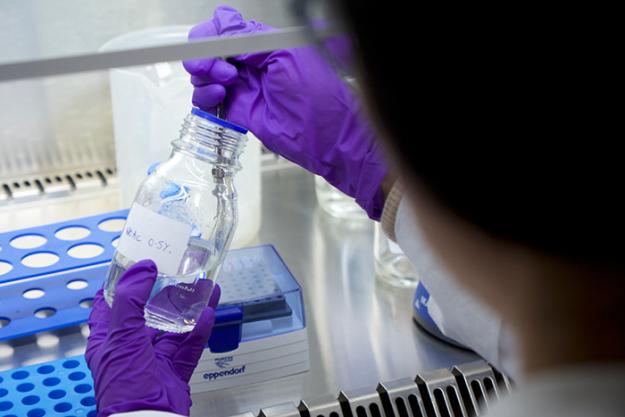
OPCW Laboratory, The Hague
THE HAGUE, Netherlands –2 July 2018– An international group of women chemists acquired new skills in the analysis of chemicals related to the Chemical Weapons Convention (CWC) during the third basic analytical course at the Laboratory of the Organisation for the Prohibition of Chemical Weapons (OPCW) in Rijswijk, Netherlands, from 26 to 28 June.
The OPCW Director-General, Ambassador Ahmet Üzümcü, in his closing remarks stated: “The OPCW remains committed to supporting gender equality. We will continue to provide the platform to raise awareness and stimulate international action. We will also continue to offer capacity-building courses for women chemists.”
The attendees deepened their analytical skills, especially in gas chromatography-mass spectrometry (GC-MS) testing. They also became acquainted with the best international laboratory practices and quality standards.
The course further provided an overview of OPCW’s activities and the main provisions of the CWC.
The participants–women chemists from OPCW Member States with developing or transitional economies–came from 10 OPCW Member States including: Argentina, Bangladesh, Botswana, Kenya, Malawi, Morocco, Philippines, Serbia, Thailand and Uganda.
Background
This course was organised as part of the OPCW’s efforts to fully implement Article XI of the CWC. Article XI encourages international cooperation in the field of chemical activities for purposes not prohibited under the Convention, including the international exchange of scientific and technical information and chemicals and equipment for the production, processing or use of chemicals for purposes not prohibited under the Convention.
The Components of an Agreed Framework for the Full Implementation of Article XI were established by the decision of the Conference of States Parties in 2011 (C-16/DEC.10 dated 1 December 2011).
As the implementing body for the Chemical Weapons Convention, the OPCW oversees the global endeavour to permanently and verifiably eliminate chemical weapons. Since the Convention’s entry into force in 1997 – and with its 193 States Parties – it is the most successful disarmament treaty eliminating an entire class of weapons of mass destruction.
Over 96% of all chemical weapon stockpiles declared by possessor States have been destroyed under OPCW verification. For its extensive efforts in eliminating chemical weapons, the OPCW received the 2013 Nobel Peace Prize.
